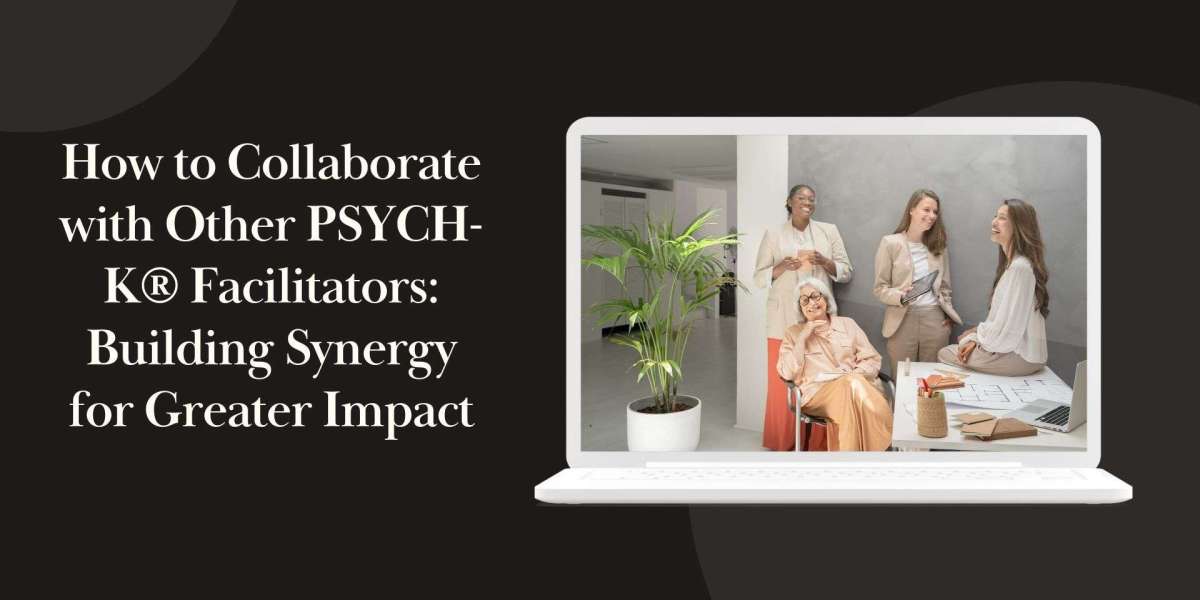Collaboration is the cornerstone of growth in any professional community, and PSYCH-K® is no exception. As a method dedicated to transforming limiting beliefs and aligning subconscious programming with conscious goals, PSYCH-K® thrives on shared experiences, collective learning, and mutual support. For facilitators, joining forces with others in the field can unlock new perspectives, enhance personal and professional growth, and expand the reach and effectiveness of their work. In this article, we’ll explore how PSYCH-K® facilitators can collaborate effectively, the benefits of such partnerships, and strategies for building a strong and supportive network.
Why Collaborate with Other PSYCH-K® Facilitators?
Shared Wisdom and Experience
Every facilitator brings a unique background, skill set, and style to their PSYCH-K® practice. By working together, facilitators can exchange insights and methods, troubleshoot client challenges, and deepen their understanding of the processes. This exchange not only sharpens individual skills but also enriches the collective knowledge of the community.
Expanding Reach and Influence
Partnering with other facilitators allows you to co-host events, share client referrals, and expand your audience. Joint workshops, webinars, or retreats can attract a wider demographic and provide participants with a more dynamic and engaging experience.
Strengthening the PSYCH-K® Community
The sense of belonging and shared purpose strengthens when facilitators collaborate. Supporting each other creates a positive, inclusive atmosphere that encourages more open dialogue, personal growth, and commitment to the PSYCH-K® mission.
Ways to Collaborate
Co-Facilitate Workshops or Retreats
Team up with another facilitator to design and deliver a powerful group experience. This can include combining complementary skills like coaching, energy healing, or public speaking. Sharing the load of planning and presentation also reduces stress and enhances the quality of the offering.
Create Online Content Together
Blog articles, podcasts, YouTube interviews, and Instagram Lives are excellent platforms for collaboration. Not only do you amplify your message, but you also expose your audience to your collaborator’s perspective—providing valuable diversity and depth.
Host Peer Practice Sessions
Regular practice sessions between facilitators can refine techniques, introduce new processes, and provide space for feedback. These can be held virtually or in person and are especially valuable for newly trained facilitators seeking confidence and experience.
Organize Local Meetups or Support Circles
If you live near other facilitators, consider organizing periodic gatherings. These can include discussions, practice sessions, meditation, or co-visioning exercises. For remote facilitators, Zoom gatherings offer a valuable alternative.
Share Resources and Referrals
Not every facilitator will be the right fit for every client. By referring clients to one another based on expertise, location, or energetic compatibility, facilitators maintain a high standard of integrity and care within the community.
Tips for Effective Collaboration
Align Values and Intentions
Before entering a collaboration, take time to align your intentions and make sure you share similar values. PSYCH-K® is heart-centered work, and resonance between partners is essential for authentic cooperation.
Communicate Openly and Honestly
Clear, open communication is key. Establish expectations regarding roles, time commitment, finances (if applicable), and conflict resolution strategies from the outset. This builds trust and prevents misunderstandings.
Embrace Complementary Strengths
Collaboration isn’t about being identical—it’s about complementing each other. If one facilitator is strong in logistics and the other in emotional intuition, both roles are equally valuable. Respect and honor these differences.
Maintain Professional Boundaries
While collaboration often leads to friendship, it’s essential to maintain professionalism. Agree on how client data is handled, how credit is shared for joint work, and what happens if plans change.
Reflect and Learn
After each collaboration, take time to debrief. What went well? What could be improved? Continuous reflection strengthens future partnerships and fosters personal growth.
Real-World Examples of PSYCH-K® Collaboration
Global Webinars During the Pandemic
During COVID-19, many facilitators across the globe came together to host virtual healing sessions and educational webinars. These gatherings connected people across continents, offering comfort and community during uncertain times.
Multi-Disciplinary Retreats
Some facilitators partner with yoga teachers, nutritionists, or mindfulness coaches to create holistic healing retreats. By integrating PSYCH-K® into a broader wellness context, participants receive a deeply enriching experience.
Mentor-Mentee Relationships
Experienced facilitators often take on mentorship roles, guiding newer practitioners through their early journey. These relationships nurture both professional development and personal transformation.
Platforms to Connect with Other Facilitators
- Official PSYCH-K® Facilitator Directory: A great starting point to find other trained facilitators.
- Social Media Groups: Facebook groups like "PSYCH-K® Facilitators Community" are active spaces to share ideas and ask questions.
- Workshops and Advanced Trainings: These events are ideal for building real-life connections.
- Professional Networks and Associations: Some facilitators are part of broader healing or coaching networks that support collaboration.
Final Thoughts
Collaborating with other PSYCH-K® facilitators is not just a strategy—it's a mindset. It’s about stepping into abundance, mutual support, and the belief that together, we can achieve more. Whether you're new to PSYCH-K® or a seasoned facilitator, fostering strong, heart-centered connections within the community will elevate your practice and inspire deeper transformation for both you and your clients.
As you seek out collaboration, stay open, curious, and grounded in the core intention of PSYCH-K®—to align with the wisdom of the higher self and contribute to the evolution of consciousness, together.

